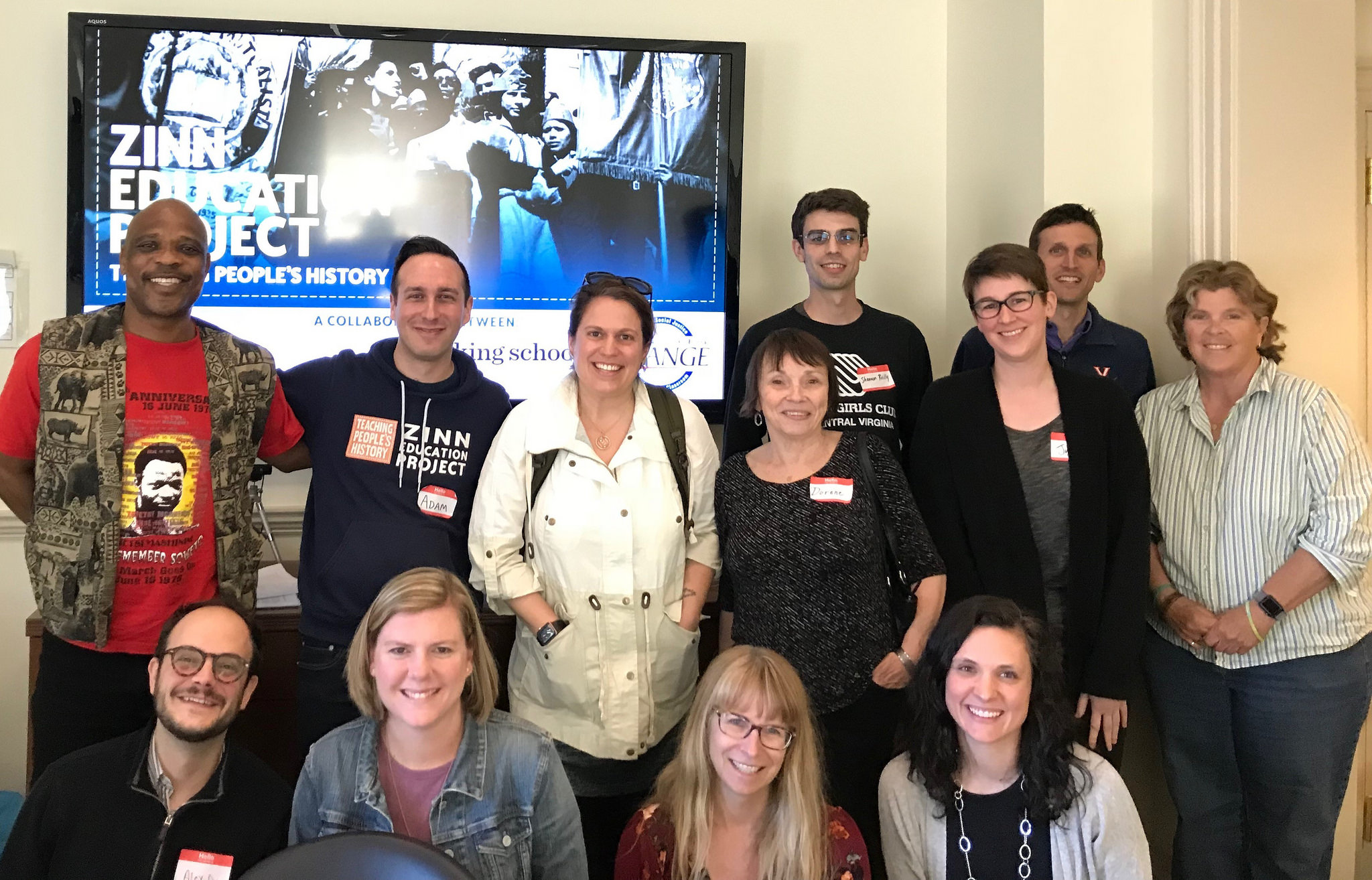
It’s been almost a year since white supremacists marched through Charlottesville, Virginia, in a deadly display of hate. In response to their defense of a monument to Confederate General Robert E. Lee, and the tragic murder of anti-racist activist Heather Heyer who attended the counter-protest, Zinn Education Project Organizer Adam Sanchez wrote an article for our If We Knew Our History column, encouraging educators to take the fight against white supremacy into our schools.
More recently, educators in Charlottesville invited Sanchez to facilitate a full-day workshop at the University of Virginia on April 30, 2018. The workshop focused on teaching the Black freedom struggle from the resistance of the enslaved and abolitionists during the Civil War, to the heroic efforts to reshape society during Reconstruction, and finally with an exploration of the powerful organizing of the Student Nonviolent Coordinating Committee.
Here’s what some of the teachers who participated in the workshop had to say:
“I liked going through parts of the lessons to get a feel for them.”
“Very engaging, great exposure to materials and this teaching approach.”
“Great examples of role-playing and interior monologue.”
“I loved the evidence reference chart and evidence wall.”
“So much of this content was new to me.”
“I learned more about the pressures on Lincoln to give the Emancipation Proclamation…. I will use this lesson in class.”
“I learned so much about individuals during Reconstruction. I also learned about specific issues SNCC debated during the movement.”
“Modeling activities, debriefing and discussing: it was all a great way to interact with other area educators.”
“I look forward to sharing what I learned with other teachers at my school.”
“This was the best PD I have had in years. Thank you!”
Special thanks to middle school teacher Dingani Mthethwa for inviting the Zinn Education Project to Charlottesville. Mthethwa, who teaches people’s history, explained that his goal is to have “students actively create meaning through critical thinking skills and thereby become active citizens as opposed to bystanders.” He believes that the Zinn Education Project lessons “re-energize students’ interests in history and social studies while pursuing learning history for a purpose.” Funding for the session was provided by Maria Kluge.






Twitter
Google plus
LinkedIn